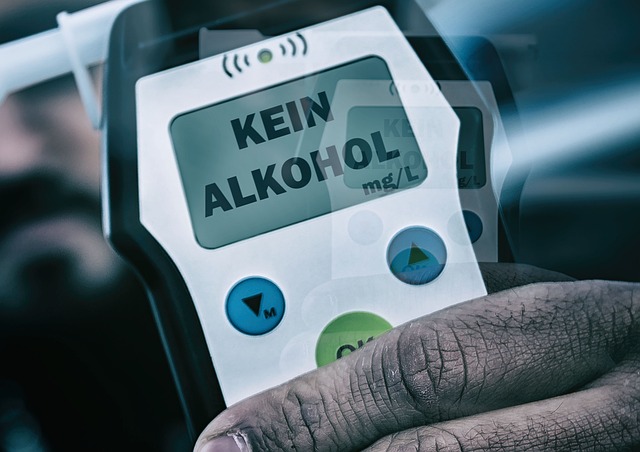Global Immigration and DUI Perspectives strictly regulate reckless driving, with severe consequences impacting visa applications worldwide. Countries view DUI as a sign of poor judgment, potentially leading to denials or revocations for individuals with convictions. Variations in legal standards complicate matters, especially for those seeking residency or work permits. Understanding each country's specific rules is crucial for mitigating immigration consequences, requiring strategic defense strategies that focus on character defense, communication, and exploring legal options. Real-world case studies highlight the significant repercussions of DUI, complicating residency for immigrants globally.
“Uncovering the intricate web of Global Immigration and DUI Perspectives is essential for anyone navigating international borders. This article delves into the far-reaching consequences of a DUI (Driving Under the Influence) charge, exploring how it intersects with immigration laws worldwide. From Understanding Global Immigration Laws to mitigating consequences, we dissect the process, offering insights into the impact on visa applications and navigating different countries’ policies. Read on for crucial strategies and real-world case studies, providing a comprehensive guide to managing DUI’s immigration fallout.”
- Understanding Global Immigration Laws and DUI Penalties
- The Impact of DUI Convictions on Visa Applications
- Navigating Different Countries' Immigration Policies Regarding DUI
- Mitigating Consequences: Defense Strategies for International Drivers
- Case Studies: Real-World Examples of DUI's Immigration Fallout
Understanding Global Immigration Laws and DUI Penalties

Global immigration laws vary widely, but they all share a common concern: public safety and national security. When it comes to driving under the influence (DUI), these laws can have severe consequences for individuals facing criminal charges. The global perspective on DUI penalties is one of zero tolerance, with strict penalties aimed at deterring reckless behavior. In many countries, a conviction for DUI not only results in significant fines and license suspension but also carries potential immigration repercussions.
Understanding these global immigration and DUI perspectives is crucial for anyone traveling or living abroad. Visas, which are permits to enter and reside in another country, can be denied or revoked if an individual has a DUI on their record. This is because many countries view DUI as an indication of poor judgment and irresponsibility, traits that are not aligned with the values of safe and welcoming societies. Consequently, those facing DUI charges should be aware of the potential impact on their immigration status to make informed decisions.
The Impact of DUI Convictions on Visa Applications

A DUI conviction can significantly impact visa applications, especially in the context of global immigration and DUI perspectives. Immigration authorities worldwide view DUI as a serious offense that raises concerns about an individual’s judgment, character, and potential to abide by local laws. This perception is further complicated by varying legal standards across countries, making it challenging for applicants with DUI histories to navigate international borders.
In many cases, a DUI conviction may result in restrictions or denials of visa applications, particularly for those seeking permanent residency or work permits. Even temporary visas can be at risk, as immigration officers often scrutinize applicants’ records for any signs of reckless behavior. The impact is more pronounced when considering that a growing number of individuals with DUI histories are citizens of countries with high migration rates, further complicating their ability to travel and live abroad under legal means.
Navigating Different Countries' Immigration Policies Regarding DUI

Navigating different countries’ immigration policies regarding DUI (driving under the influence) is a complex task due to the vast global immigration and DUI perspectives. Each nation has its own set of laws, penalties, and procedures when it comes to handling DUI cases, which can significantly impact an individual’s visa status and future immigration prospects. For instance, while some countries may offer lenient sentences or second chances for first-time offenders, others have zero-tolerance policies with severe consequences, including deportation.
Understanding these variations is crucial for individuals facing DUI charges who plan to travel internationally. In the world of global immigration and DUI, knowing the specific rules of each destination country can be a game-changer. This knowledge enables individuals to make informed decisions about their actions, potentially mitigating the immigration consequences of a DUI conviction.
Mitigating Consequences: Defense Strategies for International Drivers

For international drivers facing DUI charges, understanding the potential immigration consequences is paramount. The Global Immigration and DUI Perspectives can significantly impact an individual’s ability to remain in a country or obtain future visas. Mitigating these consequences requires a strategic defense approach tailored to each unique case. One key strategy involves building a robust character defense by presenting evidence of good moral conduct, such as community involvement, stable employment, and strong family ties within the country.
Additionally, prioritizing open communication with immigration authorities is crucial. International drivers should consult legal professionals specializing in DUI and immigration law to explore options like pre-trial diversion programs or negotiated plea deals that might lessen the impact on their visa status. Demonstrating remorse, accepting responsibility, and actively participating in any required rehabilitation or education programs can also contribute to a more favorable outcome during immigration proceedings.
Case Studies: Real-World Examples of DUI's Immigration Fallout

In the realm of global immigration and DUI perspectives, real-world case studies paint a stark picture of the profound immigration consequences that can arise from driving under the influence (DUI). One such instance involves an immigrant from Mexico who, after a single DUI conviction, faced deportation proceedings due to the strict immigration laws in place. Despite his strong community ties and family support, his criminal record proved insurmountable, highlighting how even a single lapse in judgment can lead to devastating immigration fallout.
Another case study focuses on a high-achieving student from India who, after a night out with friends, was arrested for DUI. This incident not only jeopardized her visa status but also cast a shadow over her future prospects. Her story underscores the significant impact of DUI offenses on international students and workers, complicating their ability to maintain legal residency and even return to their home countries. These examples underscore the far-reaching consequences of DUI, emphasizing the need for heightened awareness among immigrants navigating the complexities of global immigration laws.
Understanding the global immigration and DUI perspectives is crucial for international drivers. The consequences of a DUI conviction extend far beyond local penalties, often impacting visa applications and future travel opportunities. Navigating different countries’ immigration policies requires awareness and proactive management. By understanding these laws and employing defense strategies, individuals can mitigate potential fallout and protect their rights. Case studies highlight the diverse outcomes and serve as a testament to the importance of informed decision-making in this complex landscape.






